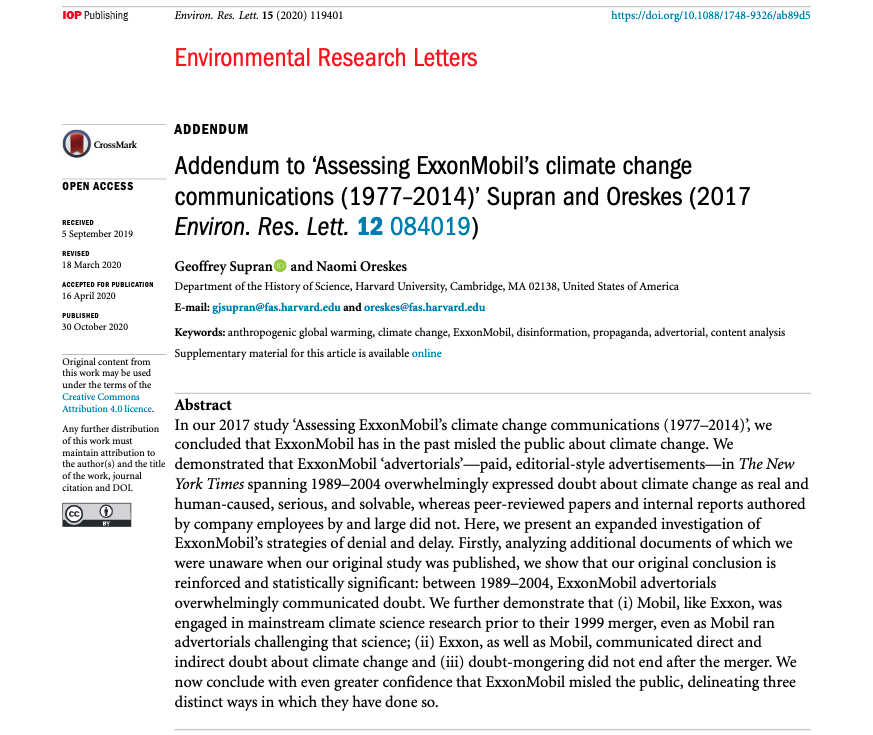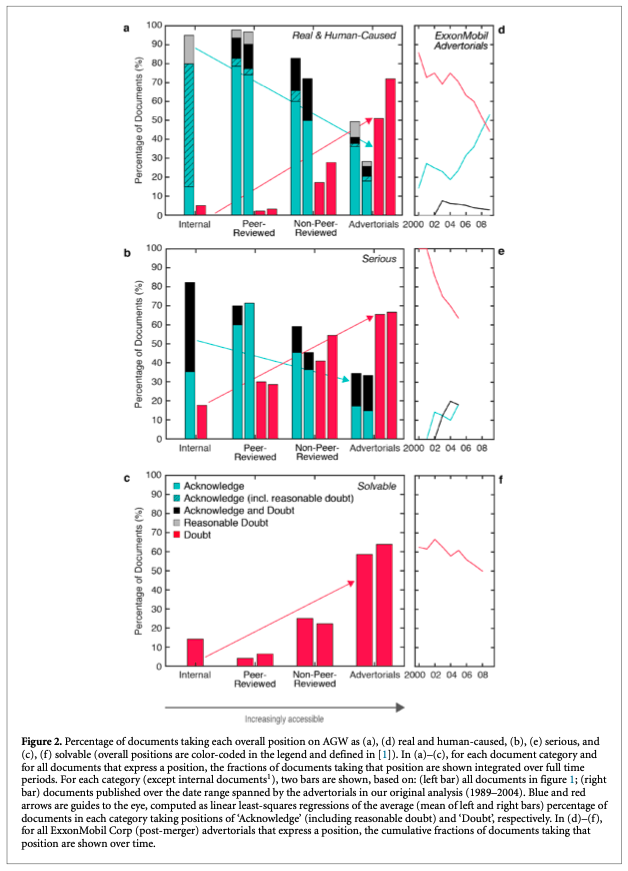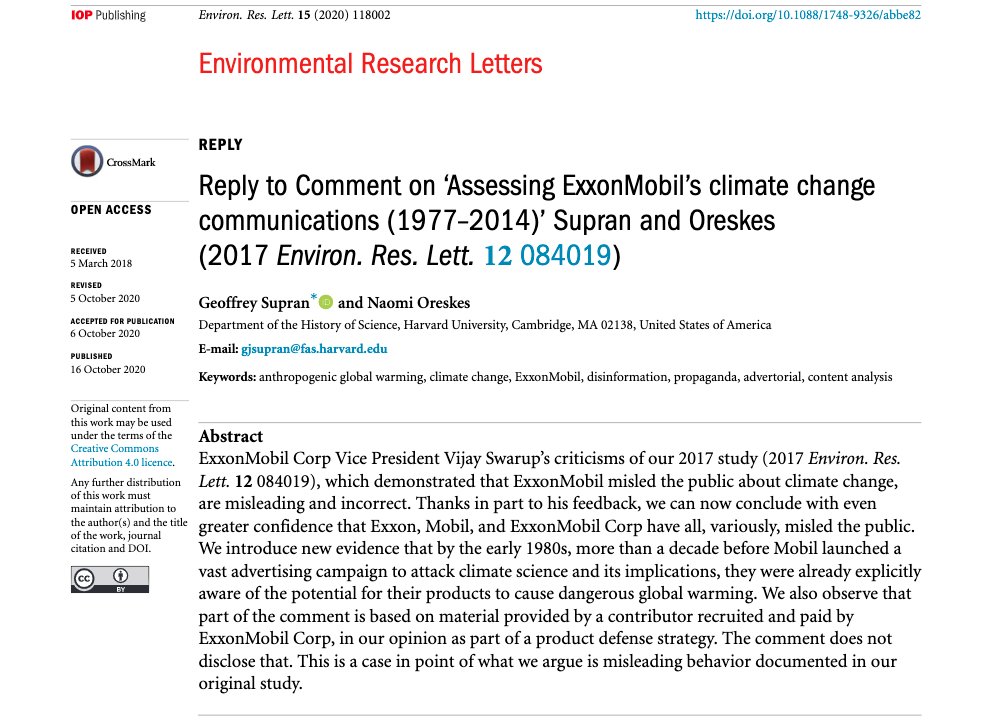
When we learned in 2019 that @MIT might rename its climate science lecture hall the *Shell* Auditorium in exchange for $3m, we raised the alarm. It made the front page of the @BostonGlobe. Today, in a win of sorts, MIT announced a "course-correct". 1/n
https://twitter.com/GeoffreySupran/status/1199026635904675841?s=20
2/n: The auditorium will instead be named the "Dixie Lee Bryant(1891) Lecture Hall", after the first woman to receive a BSc in Geology at MIT. This, as MIT rightly acknowledges, is a wonderful & "overdue recognition of women in science at MIT". eapsweb.mit.edu/sites/default/…
3/n: I am sad to say, however that this remains a greenwashing win for Shell, & yet another case of what @BenFranta & I term Big Oil's "colonization of academia".
theguardian.com/environment/cl…
theguardian.com/environment/cl…
4/n: Today's auditorium announcement even comes from the "Schlumberger Professor, Department Head".
You can't make this sh!t up.
eapsweb.mit.edu/sites/default/…
You can't make this sh!t up.
eapsweb.mit.edu/sites/default/…

5/n: The end result - the "Dixie Lee Bryant(1891) Lecture Hall" - is unreservedly terrific. But look how much protest it took by MIT's community just to avoid hanging Shell's name over the door.
6/n: Ultimately, MIT still took Shell's money. So Shell can - as oil companies consistently do - still tout its relationship with this citadel of science as evidence of its climate legitimacy.
7/n: Shell can still point to the breathless excitement of MIT scholars about "the promises that major energy companies are making to advance green energy and a carbon neutral future, Shell chief among them with its recently announced goal to reach net-zero emissions by 2050." 

8/n: Shell can still cite MIT scholars' recognition that this is an "enormous task" requiring "realistic" solutions and the "capital, know-how, infrastructure, and global reach of forward-looking energy companies". 

9/n: Shell can still quote MIT's climate faculty as writing off Big Oil's history of climate denial & delay in 1 sentence as nothing more than:
"On the one hand, we recognize that past actions of many fossil fuel companies have had negative ramifications...On the other hand..."
"On the one hand, we recognize that past actions of many fossil fuel companies have had negative ramifications...On the other hand..."

10/n: Shell has clearly been in the driver's seat on this:
When "Shell reps agreed that including the company name [on the auditorium] would not achieve its intended goal", MIT "began working w/ the Shell US External Relations team...to find a solution for a naming..."
When "Shell reps agreed that including the company name [on the auditorium] would not achieve its intended goal", MIT "began working w/ the Shell US External Relations team...to find a solution for a naming..."
11/n: "... that recognizes the company’s generous support."
"In Feb 2020, it was jointly decided that Shell would retain the right to name the lecture hall", and "Shell suggested a public “contest” to solicit names."
"In Feb 2020, it was jointly decided that Shell would retain the right to name the lecture hall", and "Shell suggested a public “contest” to solicit names."
12/n: MIT's persistent legitimization of Big Oil is summed up by its decision - or perhaps Shell's? - to heap praise on a company that, just days ago, was found in court to have a climate policy inadequate under Dutch law & an endangering to human rights.
https://twitter.com/GeoffreySupran/status/1397590867146330113
13/n: For more on MIT's history of being a climate laggard, see for example: huffpost.com/entry/scientif…
• • •
Missing some Tweet in this thread? You can try to
force a refresh










